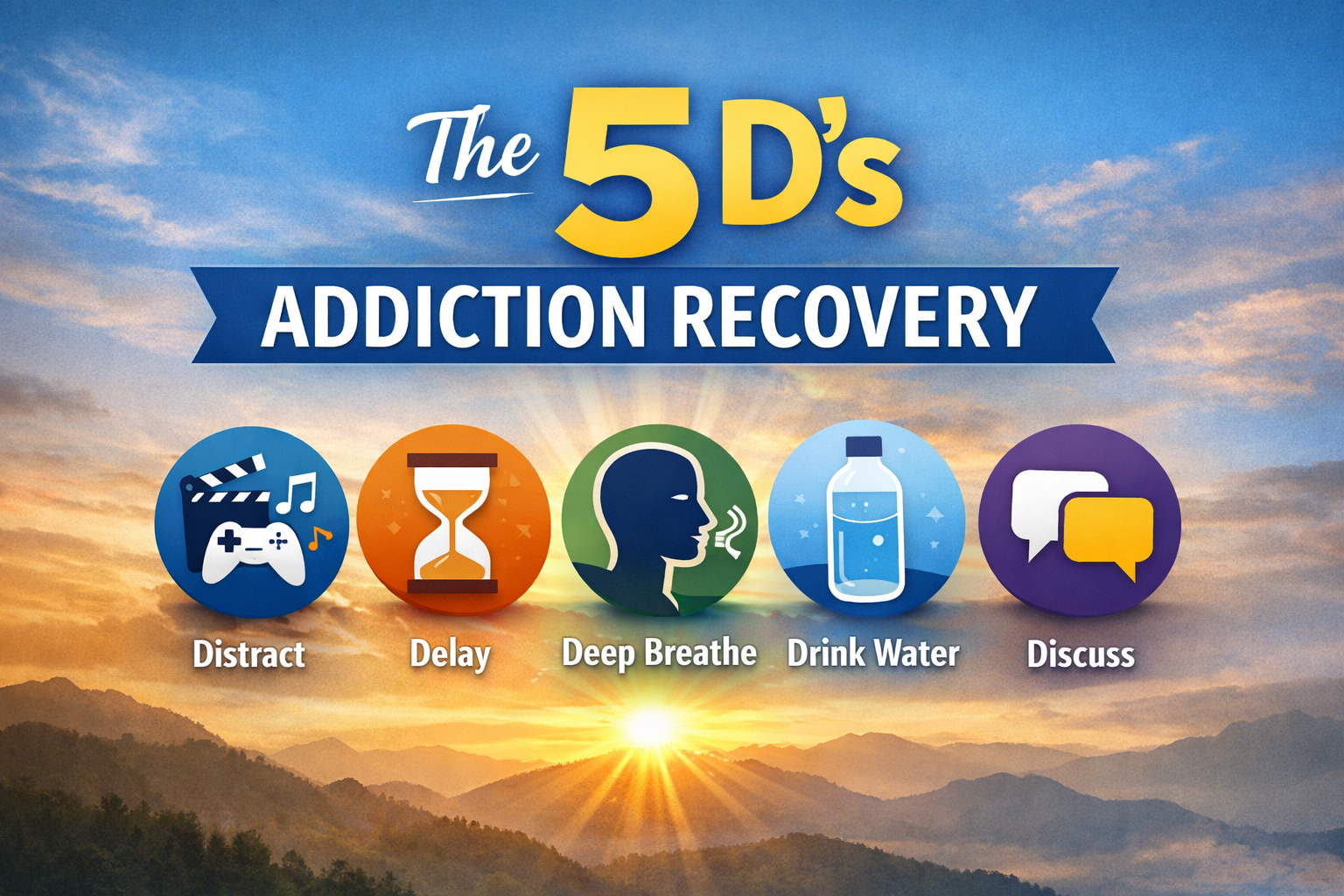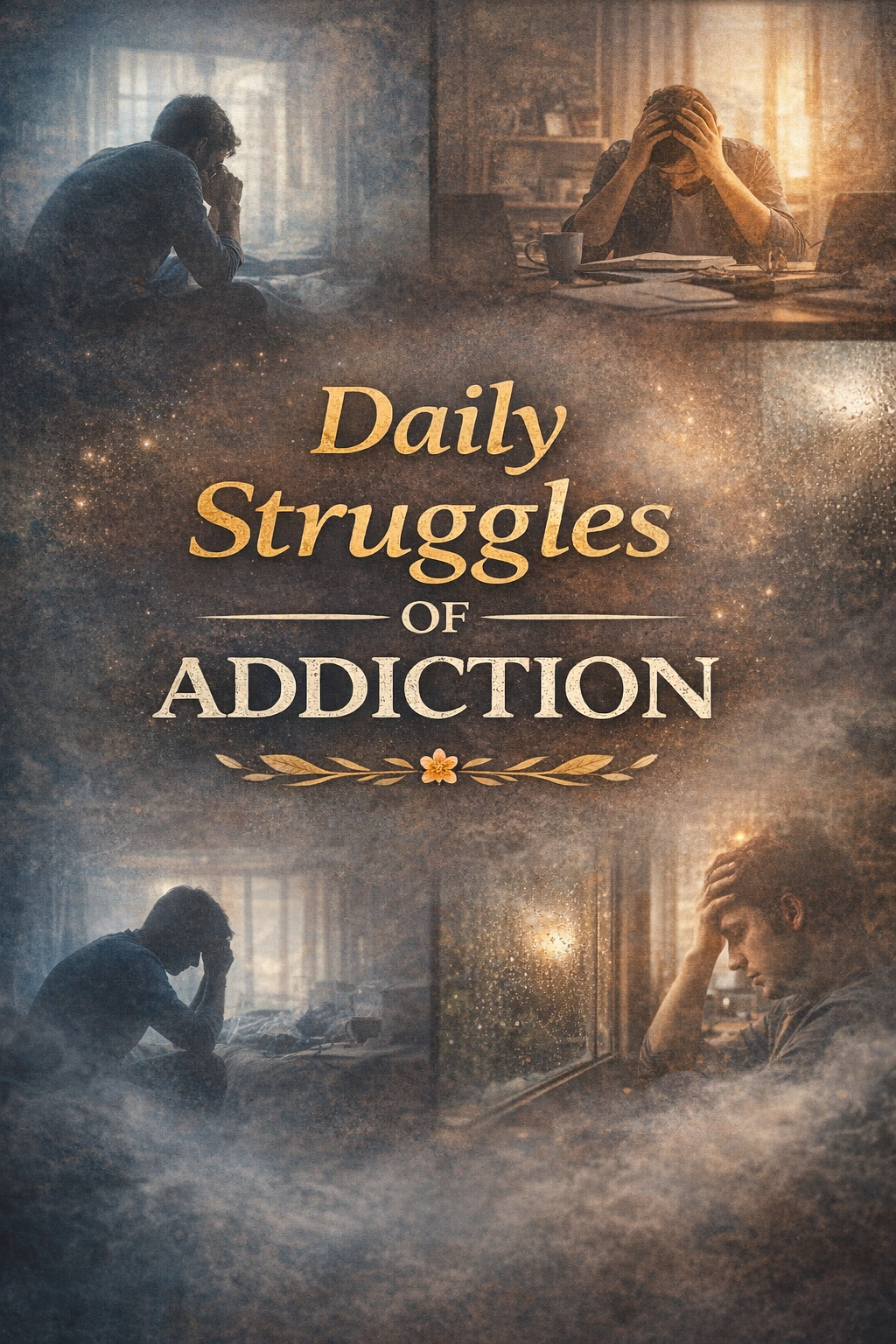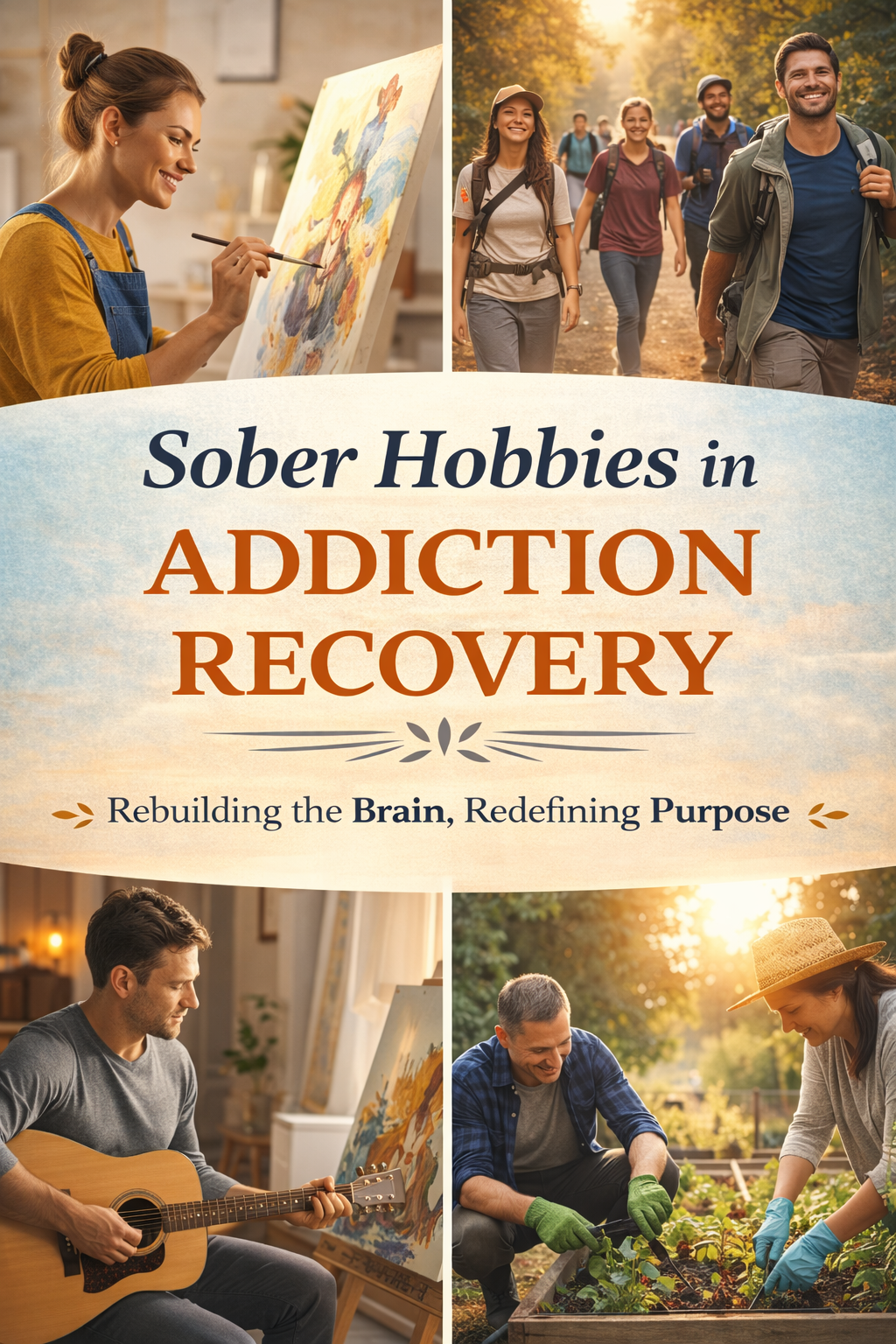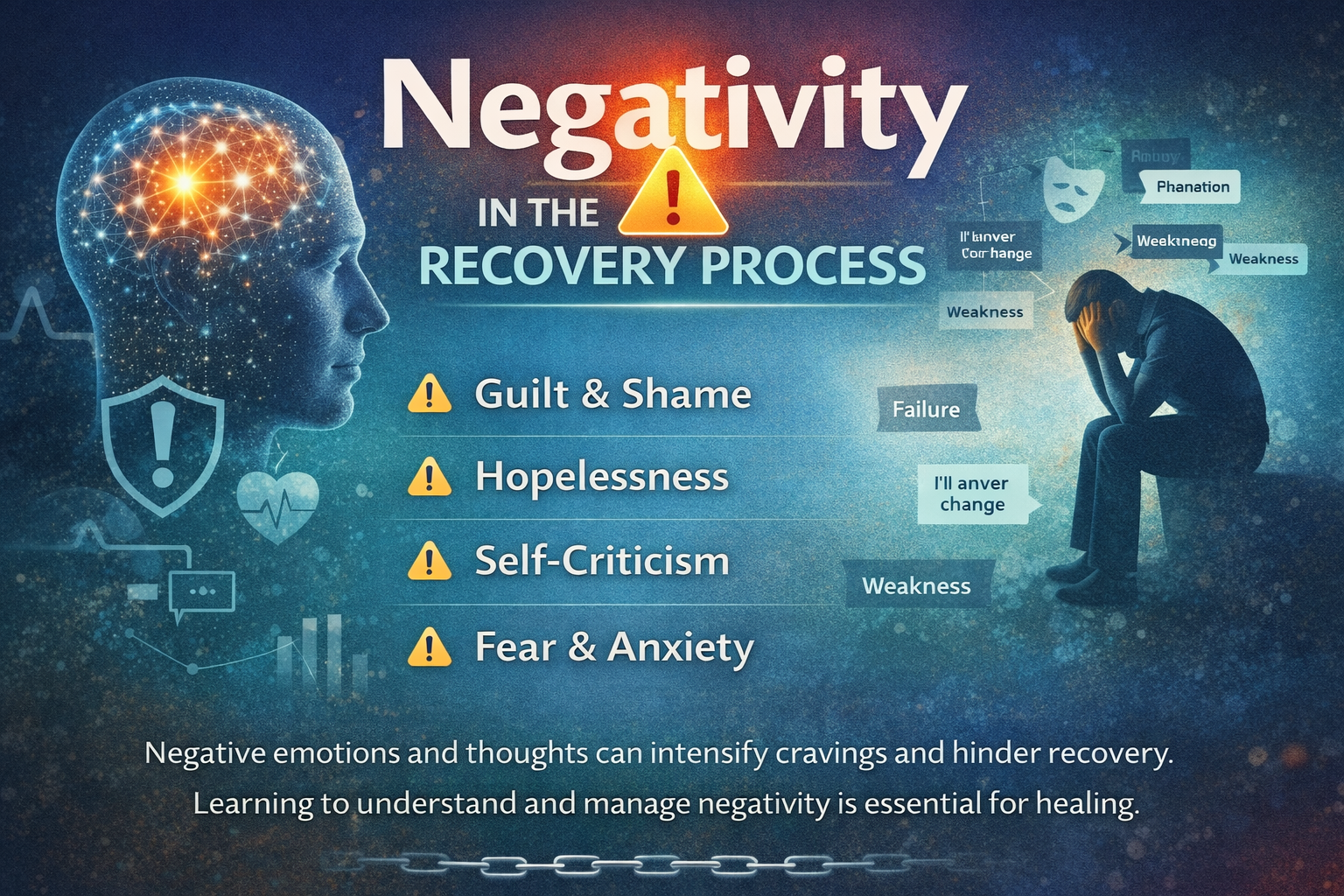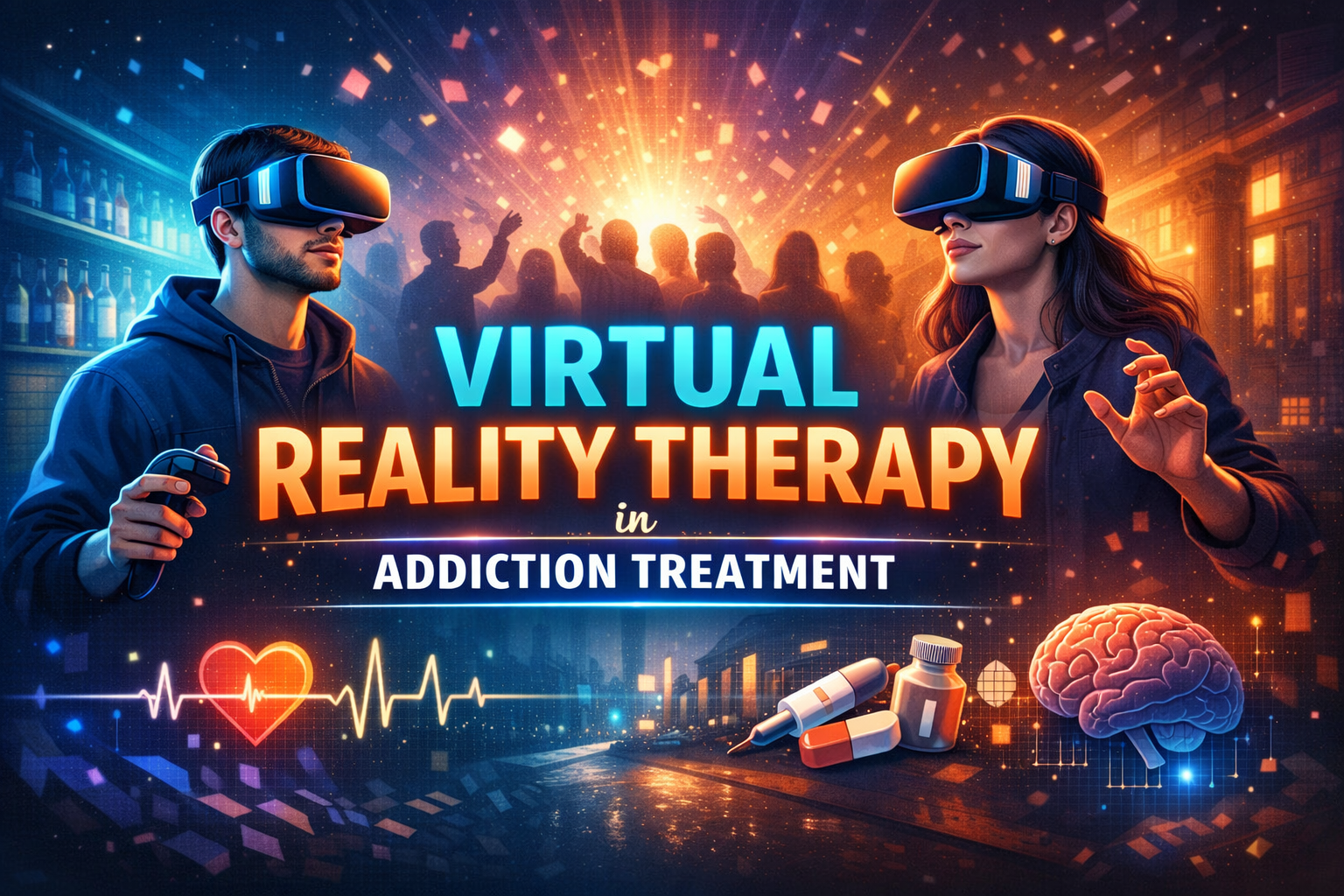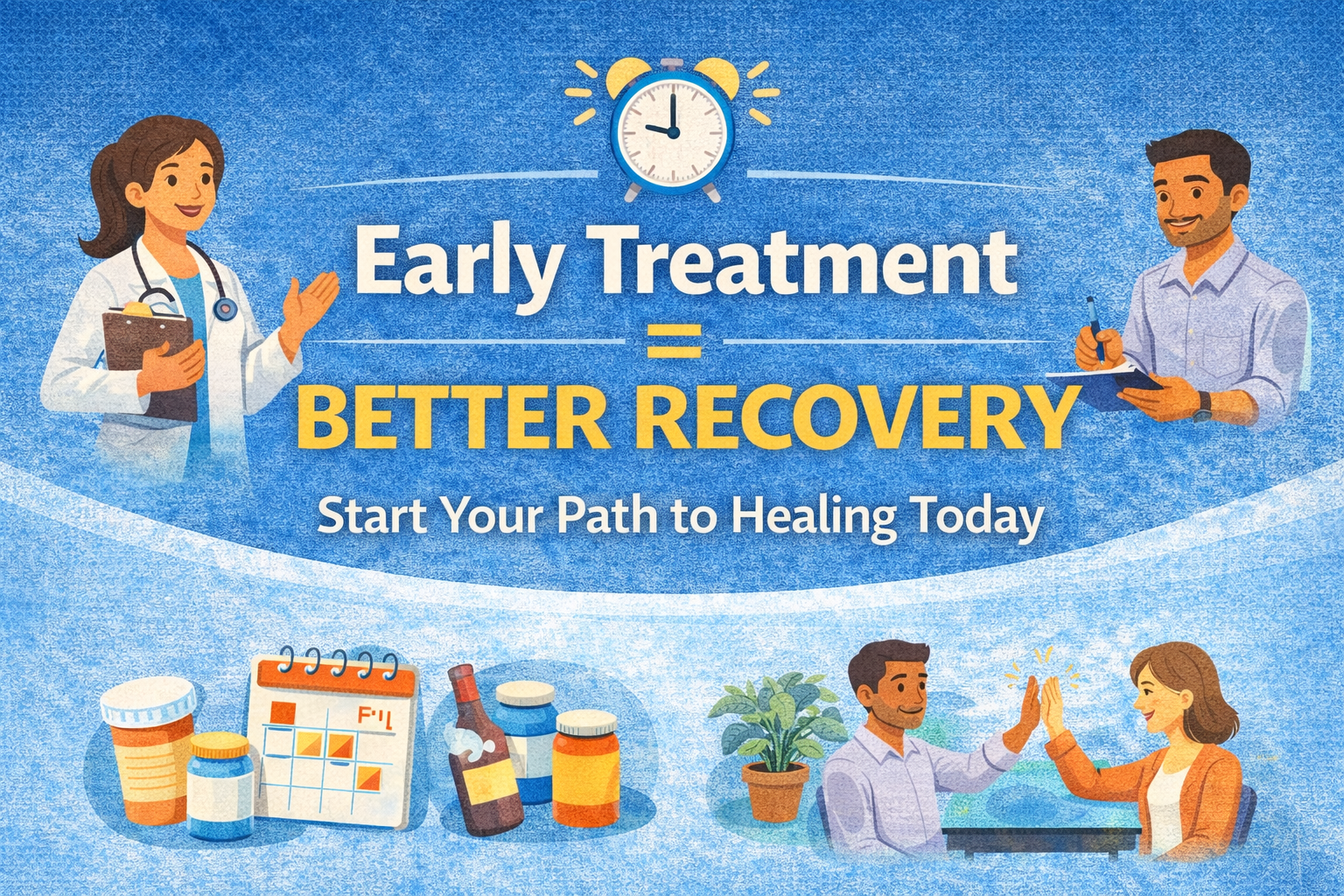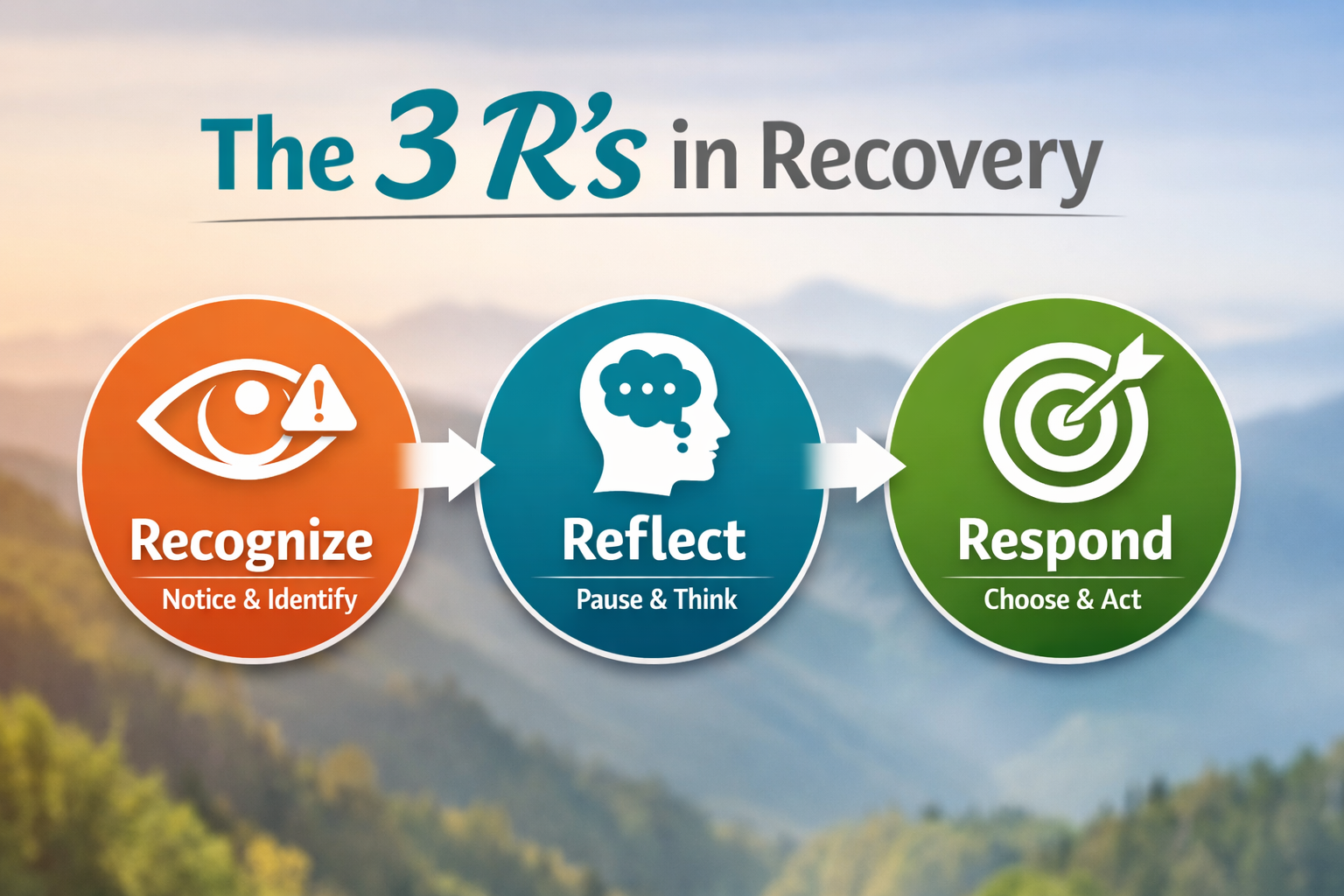From Urge to Control: The 5 D’s
The 5 D’s of addiction recovery—Delay, Distract, Deep Breathe, Decide, and Discuss—are practical, evidence-informed coping strategies designed to help individuals manage cravings and emotional triggers in real time. Rather than relying on willpower alone, this framework teaches people how to pause automatic reactions, regulate stress responses, and engage rational thinking before acting. Because cravings are … Read more
